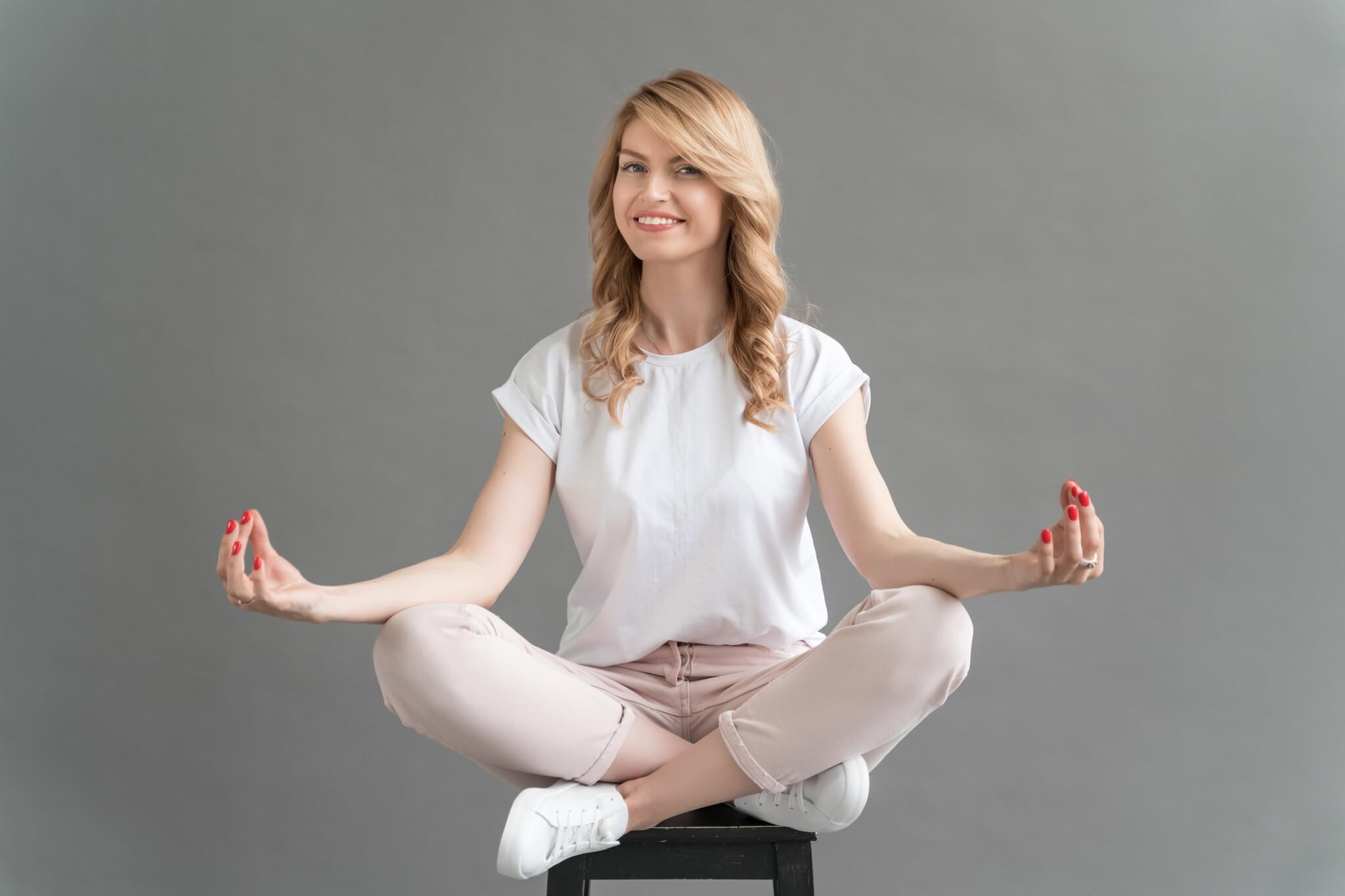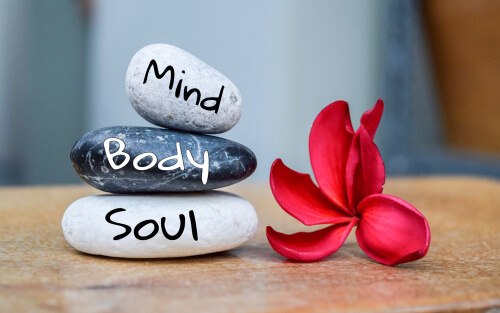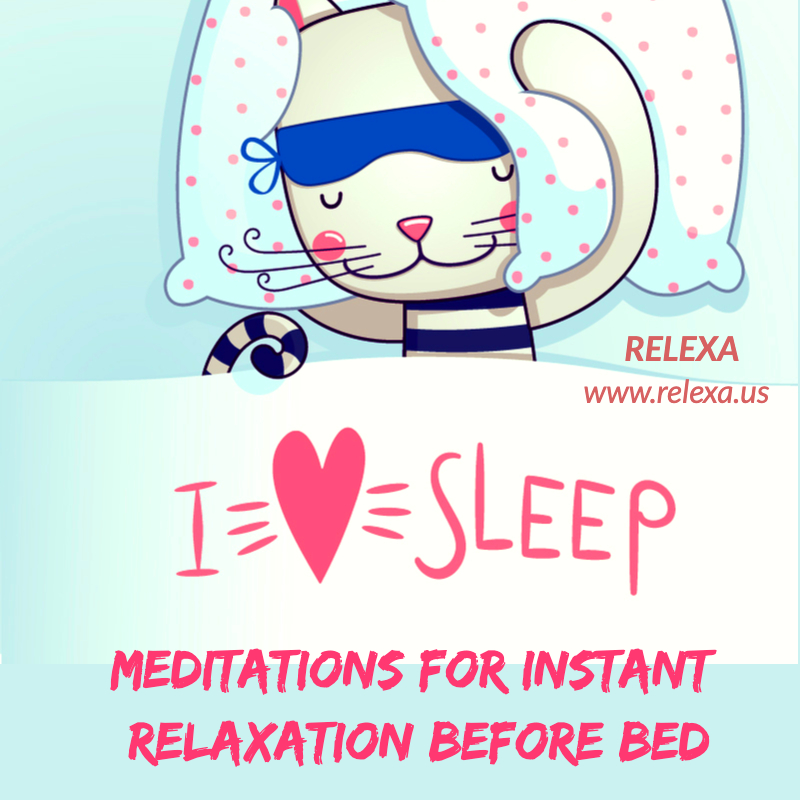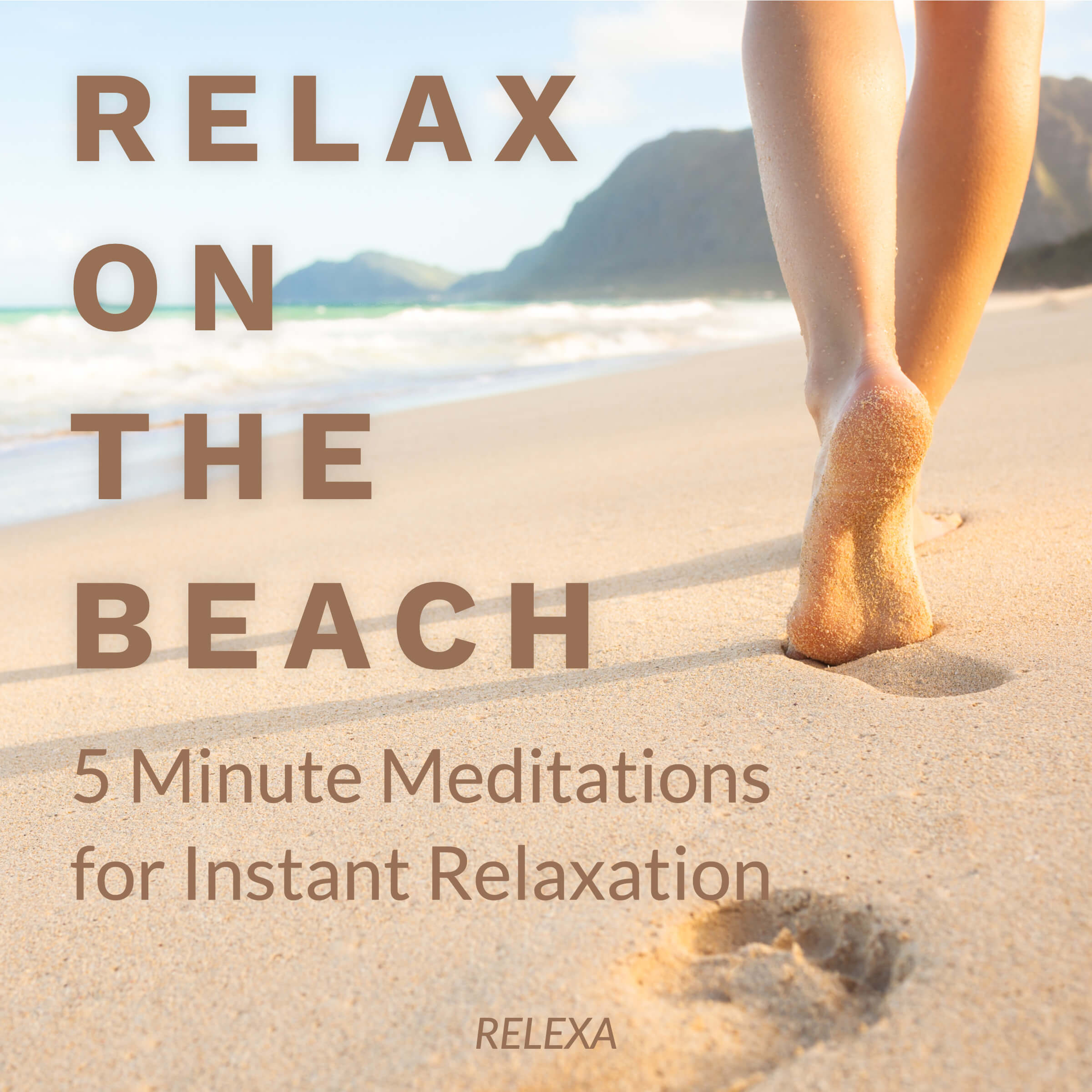How to deal with excessive anxiety?
How to deal with excessive anxiety? What to do to overcome excessive anxiety at night? If you experience anxiety at night, then believe in yourself and try the methods described in this article.

1 Do not fight negative emotions, but switch to a rational approach to your problems.
Don’t solve problems when you have anxiety at night, just write them down so you can think about them rationally later.
Usually, at night, our brain works less efficiently to solve any problems associated with negative emotions. Therefore, late in the evening or before going to bed, do not try to find a solution, but write down the obsessive questions and thoughts that arise in your mind about current problems.
Count how many times the same negative thoughts occur.
If the anxiety-ridden thoughts that you have already written down come to mind repeatedly late in the evening and at night, start counting how many times they appear. Write down the number of times you thought about them.
When you write down your thoughts and calmly count them, you turn on your rational thinking, tune in to its constructive solutions. This will extinguish to some extent irrational fears and negative emotions.
Set aside a special time to worry.
Designate a special time during the day when you can seriously and constructively think about your problems. For example, you will think about the problems that concern you at 3 pm for 20 minutes. In this way, you will be constructively thinking about your problem, reducing the likelihood of anxiety at night.
Keep a diary.
Keeping a diary will help to slow down negative emotions and teach you to think about your feelings of anxiety more rationally, which means switching to a much more calm and constructive mode. It is advisable to make entries in your diary at the same time. Write down when you experienced negative emotions associated with anxiety, keep count of exactly how many times. Write down the thoughts that pop into your head repeatedly during the day or night that are associated with feelings of fear and anxiety.
If you want to sleep like a baby tonight – try RELEXA for today!

2 Psychotechnics for constructive thinking about the problemand for overcoming excessive anxiety.
Do the following exercise to help you calm down and make smarter decisions:
Start thinking rationally.
Step 1 : Imagine the worst possible outcome.
As if looking at the events from the outside, as if they are not happening to you, but on a black and white screen, imagine the unfolding of events in the worst case scenario and with the most negative consequences.
What could you do that would be the most effective in this case?? What can be done? How do you deal with it?
Step 2 : Imagine the ideal positive option.
Continuing to look at events as if from the outside, imagine events unfolding in a positive, ideal way, with the most positive results for you and for other people.
What would be the best thing to do in this case? What choices do you see yourself making?
Step 3 : Make the most realistic forecast.
Rationally compare these two extreme scenarios, and try to see the most realistic middle ground scenario that is most likely to happen. Consider the likelihood of the proposed events happening in this way (from 1 to 100).
What do you do in this case? ? Think about what actions will be most effective, most reasonable in order to overcome difficulties.
Step 4: Check how realistic and reasonable your assumptions were.
After some time, for example, after two weeks, be sure to check how accurate your prediction was and how justified your feeling of anxiety about something was. How effective were your actions in overcoming the problem?
This is one of the techniques that positive psychology offers in order to think effectively at a time when life throws us a challenge.
Assessing the correctness of your assumptions and assessments of the situation after the fact is essential in order to develop immunity against excessive emotional anxiety and develop the ability to think constructively about problems and solve them.
So, in order to be less anxious at night, it is better to write down your fears and seriously consider your doubts during the day at the appointed time. This will help you live a calmer, happier life and solve your problems constructively.

3 How to balance your emotions during the day so you don't have anxiety at night.
What else needs to be done to maintain the ability to think and act effectively, even when very difficult and negative emotions prevail?
You need to start to be aware of when you feel good, when you feel calm or even neutral, and when you begin to experience sensations and emotions that can be described as negative.
Negative emotions are inevitable and they will occur,but when negative emotions outweigh positive ones for long periods of time , this becomes a problem.
To feel happy, you need to have two positive emotions for every negative emotion each day.
Find your own way to generate enough positive emotions throughout the day. You can engage in some pleasant activities or hobbies. Meditation is a particularly beneficial exercise. because it not only generates positive emotions, but teaches mindfulness , self-control, and harmonizes your personality and body.
The better you learn to create a positive emotional balance, so that your negative emotions are always compensated by positive ones, the less you will be prone to anxiety at night.

4 To achieve a better emotional balance in everyday life, lead an active lifestyle.
To feel emotionally balanced, mentally balanced, and sleep well, you should lead an active lifestyle, and move physically as often as you can. Most of us need more exercise than we think.
Move as much as possible with pleasure: walk, run, dance, do fitness or work physically. Discover what gives you the most sense of the joy of movement. After intense physical activity, be sure to rest.
An active lifestyle is good not only for physical but also for emotional health. Choose those active sports or fitness activities that help you have more fun and get in touch with your body (for example: dancing, yoga, walking, running in nature, etc.) Exercise on a regular basis. It not only helps you stay in good physical shape but also reduces tension, prepares you to better handle stress, and become more relaxed.
Make a daily habit of walking or running outside. Try to be present while you are walking or running; pay attention to your body and let your mind rest.Positive feelings throughout the day and physical activity will help you to generally harmonize your state of mind, improve your mood and reduce feelings of anxiety both during the day and at night.
Take breaks
Take breaks throughout the day to avoid getting emotionally drained.
During the break, take a short walk so you can enjoy this moment of relaxation, simply being in the present, aware of your movements and breathing. Even a short walk, especially in nature, can help reduce feelings of stress and help you relax.
During one of your afternoon breaks, find a quiet place where you can completely unwind. Close your eyes and spend a few minutes in deep relaxation. You may also choose to practice any meditation that keeps you refreshed and balanced.

5 Before going to bed.
In the evening, before going to bed, take some minutes to sit in silence in dimmed light.
Inhale and exhale quietly and get in touch with your feelings right now. Breathe calmly, think about something good that happened today. Thank the day that has passed for the positive lessons it brought you.
To help set yourself up for restful sleep, emotionally and mentally, listen to our meditations every night before bed.
Before bed, listen to: Meditations for relaxation, good sleep and beautiful dreams.
Doing this meditation regularly for a few weeks before bed will help reduce feelings of anxiety at night.
Surround yourself with positive things that remind you of something good and evoke positive emotions.
Create an atmosphere of harmony, calmness and coziness at home. Surround yourself with things you love as well as things that foster positive associations and feelings.

6 Deciding what I can and cannot control to free myself from anxiety at night.
I will give a simple example of what is easier and harder to control sometimes.
It is difficult for someone to control the compulsive eating of ice cream every night at home, but it is easier to control yourself simply by not buying it at the supermarket.
That is, in order to give up the bad habit of eating a bucket of ice cream in front of the TV every evening, it’s easier just not to buy ice cream and not keep it in your home refrigerator. It is better to turn ice cream treats into a small celebration by visiting your favorite cafe on special days, making a choice consciously, slowly and with great pleasure, eating ice cream, enjoying this pleasure mindfully and without guilt.
Think about what’s concerning you as you make two lists: the first list is everything you can control, and the second list is everything you can’t control.
For example, you find it difficult to control overwhelming insomnia and anxiety at night. But it is easy for you to consciously keep a diary of disturbing thoughts, to count them, and to think rationally about constructive solutions to the problems that bother you.
It is difficult to control frequent waking up during the night.
It is easier to control the regular observance of the optimal daily routine. Go to bed on time or a little earlier, spend half an hour before going to bed doing something calm and relaxing. It is easy to listen to a guided meditation to relax and prepare for restful sleep.
It is difficult to control the frequent occurrence of disturbing thoughts in your mind.
It is easy to control regular diary keeping. It is easy to count moments of anxiety. It is easy to mentally work on thinking through problems at a specially chosen time.
It’s hard to control fear and panic attacks.
It is easier to learn meditation and breathing practices that help you achieve a more peaceful state of mind during the day and night in general.
Sometimes it is difficult to control the occurrence of excessive negative emotions.
It’s easier to consciously engage in activities you love and beneficial, healthy physical or meditative exercises that will help you generate more positive emotions and help offset negative emotions, feel generally calmer and happier.

7 Try to understand the true causes of your anxiety.
When you learn to live in harmony with yourself and experience less anxiety, it is also very important to understand the reasons for the excessive anxiety that you experience.
Often this reason is excessive concern for other people’s opinions and thoughtless conformity.
Yes, on the one hand, it is quite natural that we often want to be liked, to be accepted by the people around us, to evoke a positive attitude towards ourselves.
On the other hand, by developing the ability to have an internal reference in evaluating yourself and your actions, the ability to take personal responsibility and the ability to adequately evaluate yourself and your actions, it helps to be less dependent on someone else’s often superficial opinions and stereotypical judgments.
Get in the habit of rationally evaluating your actions, deeds, quality of work, and the like on a ten-point scale. For example, sometimes evaluate how good the food you cooked was (let’s say – tasty – 9 points, healthy – 6 points). Self-assessment of the shortcomings of your work or any actions will help you improve in this, but it can also make you feel more confident. When you independently know how to evaluate your actions in a level headed and constructive way, you are less dependent on other people’s opinions, you are not so vulnerable to such judgments and to unreasonable criticism from other people.

8 The benefits of meditation and personal development.
Sometimes it is useful to take care of your own development, turn to a coach or psychologist to work on your personal growth in order to achieve greater psychological maturity. It can also help reduce overdependence on the judgments and superficial attitudes of others, which is often the cause of social anxiety.
Mindfulness in everyday life, a better understanding of your own emotions and needs, will also help on the path to yourself. Every time you meditate, pay attention to the development of your consciousness, work on personal effectiveness, achieve a calmer state of mind, you become a more mature, harmonious and confident person.
Meditation to release feelings of anxiety : Tree of Life.
Listen to this meditation to relieve excessive anxiety. You will instantly feel better.
This visualization is a powerful metaphor that will help you find a sense of harmony and confidence. Listen to this meditation every time you want to restore a sense of inner strength, calmness, and relieve anxiety.
Inner peace and positive energy are absolutely necessary to be a reasonable, efficient and harmonious person.
In conclusion:
If you experience anxiety at night, then believe in yourself and try the methods described in this article. Use a rational approach, keep a diary, count and write down disturbing thoughts, look for solutions to problems at a specially set daytime, learn to meditate, lead a healthy active lifestyle, learn to be more confident and more independent in evaluating yourself and your actions, develop psychological maturity and confidence in yourself, and you will definitely say goodbye to anxiety at night.








